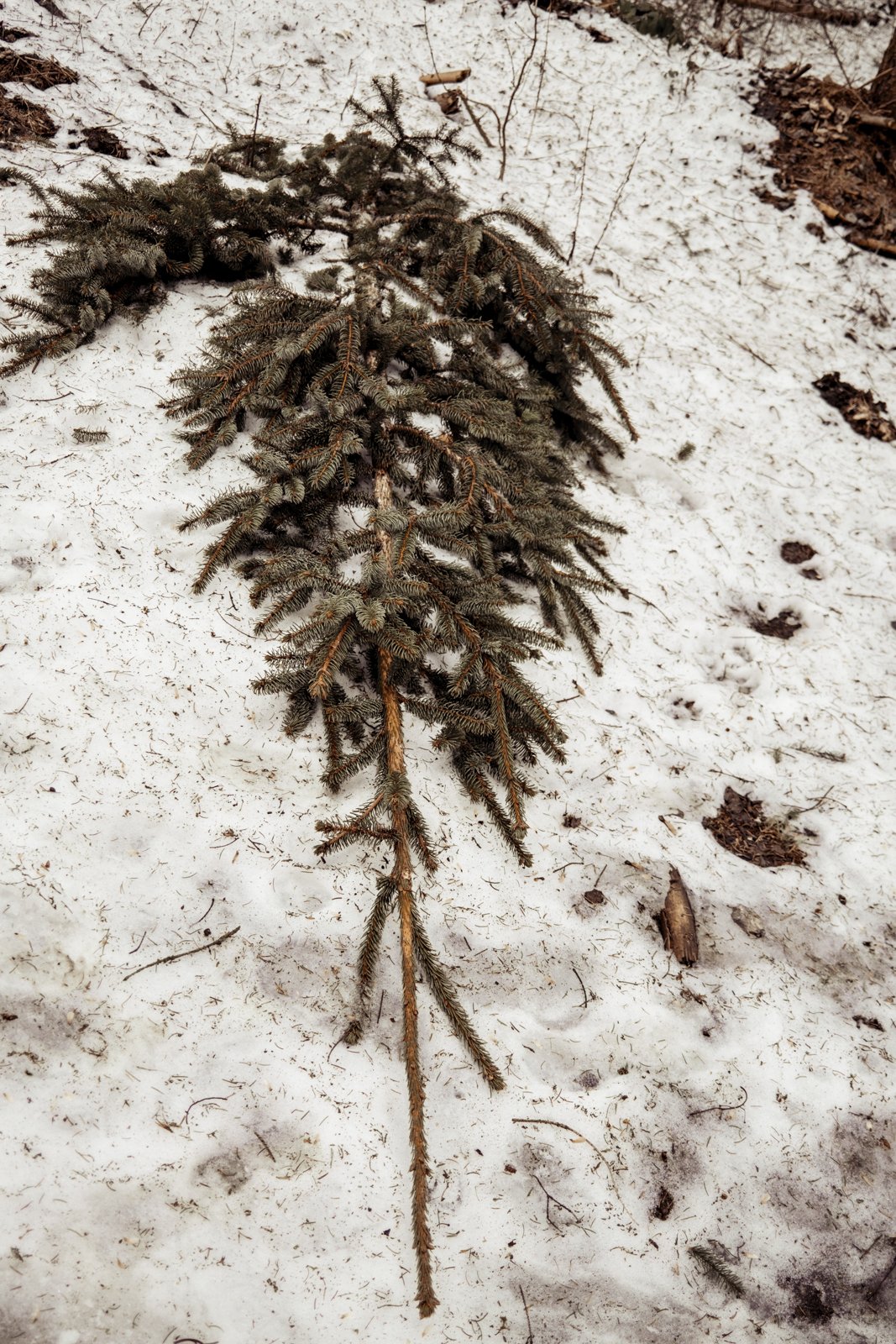Todtnauberg
Some interpretative keys for the series Todtnauberg or the Eternal Return, while leaving the viewer free to project their own stories and imagination.

Beneath the White Veil, Memory
Perhaps this building is a metaphor, or merely a coincidence. But snow doesn’t just cover—it also reveals. This void, this dominant whiteness, is absence. The absence of those who vanished, the absence of clear answers to the ruptures of the past. It is a landscape frozen in time, where the muteness of the place speaks louder than words.

The fir tree
This photograph serves as a warning: everything that falls returns, in another form. The dead tree, the stained snow, the frozen landscape—they speak of a cruel cycle, where humanity forgets what the land, unyielding, will always remember.

Christmas
This scene, with its simple yet poignant details, could be seen as a pause in the tumult of time. It illustrates the resistance of small things to the erosion of history, a persistent trace of life in a landscape marked by time and events.

The veil
The veil, often associated with notions of transformation or ritual, in this context symbolizes the passage from one era to another. It reflects how individuals are shaped by their inheritance, whether consciously or not, and how the past of each generation leaves an indelible mark on individuals and communities.

Skulls, frozen in eternal stillness
These skulls, arranged in a grim procession, tell the story of a world where death has been normalized, mechanized, where the moment of a life extinguished has been transformed into a mere link in a chain of production.

Verdun
These photographs taken in Verdun, immerse the viewer in a landscape where nature and history intertwine to evoke the massification of death.

Danaus plexippus
The monarch butterflies, known for their tireless migratory cycle, embody both fragility and resilience. Their chaotic, almost hypnotic movement mirrors the currents of history: masses that appear disorganized at first but gradually come together, structuring themselves into systems that often become oppressive.

Sulamith
The soft light contrasts with the stark darkness of the hair, creating a visual dialogue that echoes the opposition of “goldenes Haar Margarete” and “aschenes Haar Sulamith” in Paul Celan’s “Todesfuge.”

Heideggers “Hütte”
Todtnauberg: Heidegger’s hut, not merely a philosophical retreat, but a haven for thoughts that delve deep into the undergrowth of history.

Ein Meister aus Deutschland
The grandfather, the “Master from Germany,” that fearsome shadow in the background. You want to get rid of him, but – he’s there.

Oskar
And the girl portraits, a young defiant figure, like Oskar Matzerath, seeing everything clearly: the splendor and the shame, eyes wide open.
